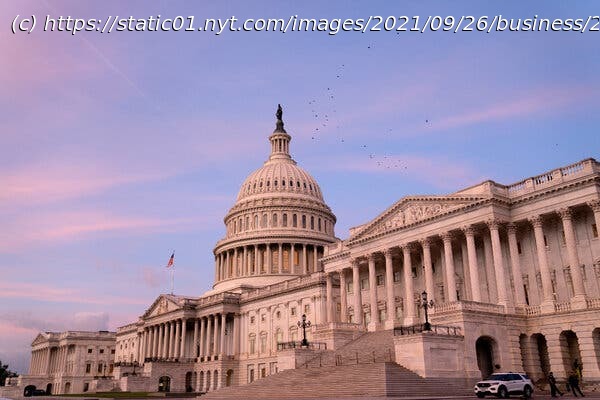Republicans and Democrats have long sparred over raising the debt ceiling. But this time, the odds are growing that the U.S. could default.
For nearly two decades, lawmakers in Washington have waged an escalating display of brinkmanship over the federal government’s ability to borrow money to pay its bills. They have forced administrations of both parties to take evasive actions, pushing the nation dangerously close to economic calamity. But they have never actually tipped the United States into default. The dance is repeating this fall, but this time the dynamics are different — and the threat of default is greater than ever. Republicans in Congress have refused to help raise the nation’s debt limit, even though the need to borrow stems from the bipartisan practice of running large budget deficits. Republicans agree the U.S. must pay its bills, but on Monday they are expected to block a measure in the Senate that would enable the government to do so. Democrats, insistent that Republicans help pay for past decisions to boost spending and cut taxes, have so far refused to use a special process to raise the limit on their own. Observers inside and outside Washington are worried neither side will budge in time, roiling financial markets and capsizing the economy’s nascent recovery from the pandemic downturn. If the limit is not raised or suspended, officials at the Treasury Department warn, the government will soon exhaust its ability to borrow money, forcing officials to choose between missing payments on military salaries, Social Security benefits and the interest it owes to investors who have financed America’s spending spree. Yet Republicans have threatened to filibuster any attempt by Senate Democrats to pass a simple bill to increase borrowing. Party leaders like Senator Mitch McConnell of Kentucky want to force Democrats to raise the limit on their own, through a fast-track congressional process that bypasses a Republican filibuster. That could take weeks to come to fruition, raising the stakes every day that Democratic leaders decline to pursue that option. The problem is further compounded by the fact that no one is quite sure when the government will run out of money. The Covid-19 pandemic continues to ravage the United States in waves, frequently disrupting economic activity and the taxes the government collects, complicating Treasury’s ability to gauge its cash flow. Estimates for what’s known as the “X-date” range from as early as Oct.15 to mid-November. Amid that uncertainty, congressional leaders and President Biden aren’t even attempting to negotiate a resolution. Instead, they are sparring over who should be saddled with a vote that could be used against them, raising the odds that partisan stubbornness will propel the country into a fiscal unknown. It all adds up to an impasse rooted in political messaging, midterm campaign advertising and a desire by Republican leaders to do whatever they can to protest Mr.






